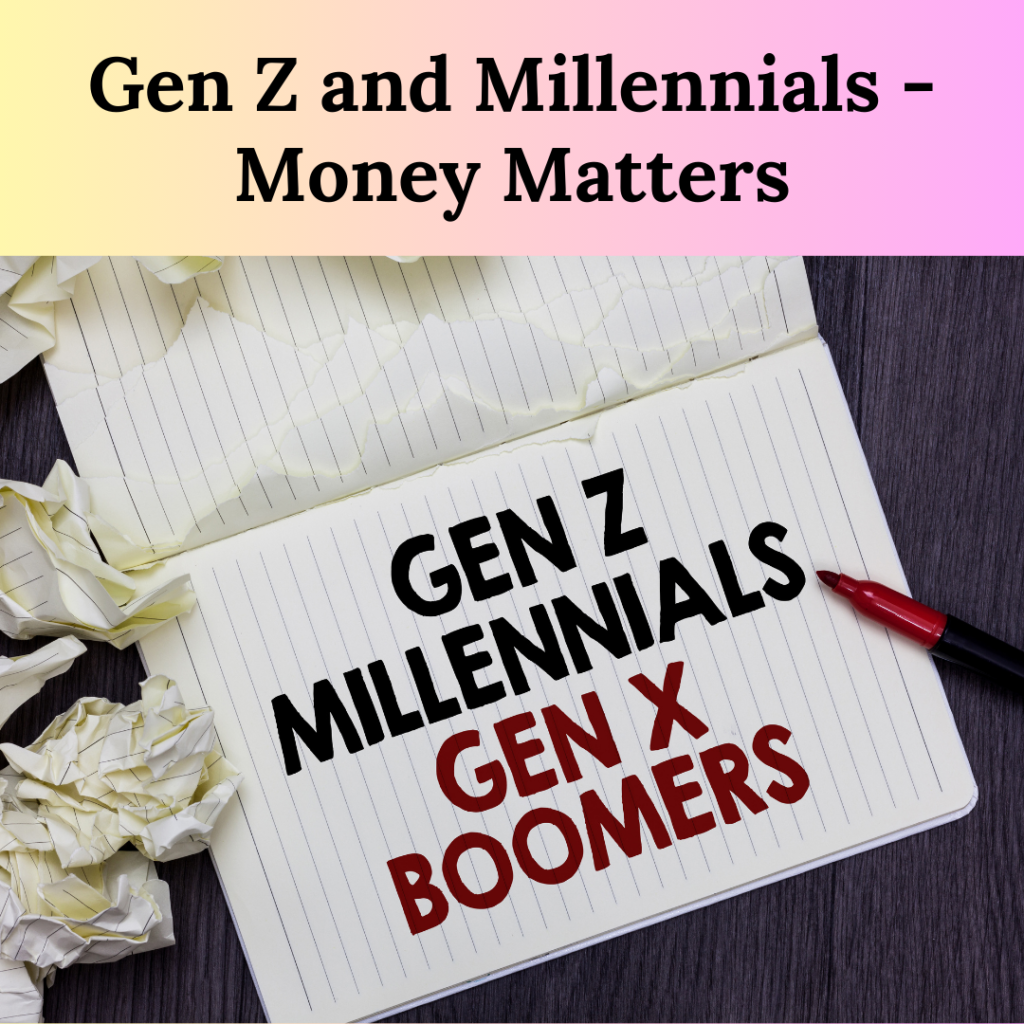
First, let us see the definition of Gen Z. Generation Z (commonly abbreviated as Gen Z) is the demographic generation that succeeds Millennials and precedes Generation Alpha. Gen Z is the cohort of persons born between 1997 and 2012. Millennials, on the other hand, are a demographic generation born between 1981 and 1996. They are also known as ‘Generation Y’ or simply ‘Gen Y’.
Now in this blog article, let us see how this Millennial and Gen Z are faring when it comes to money matters.
‘Gen Y’ and ‘Gen Z’ – the reality:
Both of these generations face unique financial issues, such as a post-recession employment market conditions, large education loan debt levels, an increasingly costly housing market, and rising credit card debt. They believe they aren’t doing sufficient to address these financial issues. Cultivating good money habits early on can have a big influence on the way they handle their finances. Both millennials and Generation Z rely heavily on the Internet and YouTube to gain knowledge about finances and also to get investing advice.
But after years of being persuaded that things will better and that they should just keep going up, Millennials as a whole are at least slightly concerned about handling their personal finances. They are mainly concerned with saving money, controlling debt, and providing for their retirement. In fact, 73% of Millennials are expected to live paycheck to paycheck. According to a poll, three-quarters of Millennials (aged 27 to 42) were feeling slightly nervous about their money matters. Financial worry has become a complicated aspect of adulthood life, particularly when it appears that another recession or large global shock might devastate whatever financial stability younger individuals have built so far.

If the aforementioned applies to millennials, only less than a third of Gen Z feels financially stable, while more than half of Gen Z is highly concerned about not possessing sufficient money. Gen Z is presently the second-youngest generation, having grown up in the digital age. Nonetheless, their financial concerns are on par with those of millennials.
What can they do to better serve the purpose?
Having discussed their woes in the above section of this article, however, the truth lies in the point that by simply altering their perspective and taking ownership of their financial situations will relieve them of concern. To some extent, that is true. Concentrating on what you can control, defining your core principles, and figuring out how to remain within your financial boundaries while spending on what is most important to you may result in a life that feels wealthy. However, none of these behaviors are easy, and all of them need attaining a basic level of financial security, which is sometimes difficult for youngsters who have not had the opportunity to accumulate savings or form strong professional connections.
Even mindful financial choices might not always provide safety. The Covid pandemic instantly emptied the most substantial emergency savings reserves for individuals in sectors that were closed down for lengthy periods of time. Inflation has eroded the benefits of getting a better salary, securing a promotion, or changing jobs to earn more money. Young individuals also have to spend a far larger part of their salary on dwelling than what their parents did. We cannot also totally rely on government-provided social security, since it is small in countries such as India, therefore we must rely on our own means of continued financial existence for better prospects of a financially stable life. These issues have also hampered the capacity to generate and pass on generational wealth, allowing others to begin life on second or third base.
So, in the shortage of having greater safety nets for people who fall on difficult times, individuals must shore up their resources to withstand even the most unforeseen events or financial crises. Financial crises will also involve health crises because medical costs are regarded to be a primary cause of bankruptcy, and with medical inflation among the highest in many nations. It’s no surprise that both Millennials and Gen Z are concerned over these situations.

We can clearly observe that there is a relationship between medical care and employment. Companies provide health insurance coverage to their employees. Losing a job might create enormous financial pressure since these employees lose their health insurance coverage. As a result, jobless persons do not receive these employer-provided healthcare benefits. This worsens the already difficult financial situation of people who are unemployed. Governments are making indirect attempts to reform policies in order to safeguard unemployed people as well. However, these policies are still in their early stages, and much more work is still to be carried out on this aspect.
Younger millennials and older Gen Z (those born in the 1990s) are coming up with their own financial security plans, although the bulk of them are still 50% behind their wealth estimates. This percentage could be even worse if the effects of events such as pandemic or job loss or recessions were taken into account.
These generations (which include me as well, as I am a modest milllennial) might keep facing once-in-a-lifetime occurrences such as pandemics, recessions, job losses, or other calamities that diminish their financial growth. One positive aspect of this is that we may expect Gen Z to pick up lessons from both millennials and Gen X. For example, the elder generation possesses a healthy skepticism for the education loan and its burden on the youngsters who just start their job careers. Gen Z can learn from these mistakes and be cautious while moving ahead in their financial lives.
Regardless of the fact that millennials have significantly more experience than Gen Z, 54% of Gen Z owns some form of investment compared to 39% of millennials. This demonstrates their use of accessible knowledge, better technology, and faster understanding capacity than millennials. We might also expect that Gen Z, as the first real generation of digital natives, will be able to use the power of modern technology to triumph over financial difficulties and advance in their jobs and financial lives.
Social media platforms have enabled Generation Z to become more socially engaged. They utilize social media to express their financial opinions and interact with others who share the same views. This makes Gen Z feel like they’re part of a financial group, so they’re more inclined to seek financial guidance from others in their generation than earlier generations. They might take pride in their ability to adapt to fast technological development. At least until ‘Gen Alpha’ (the next generation born after 2012) enters the job market.





